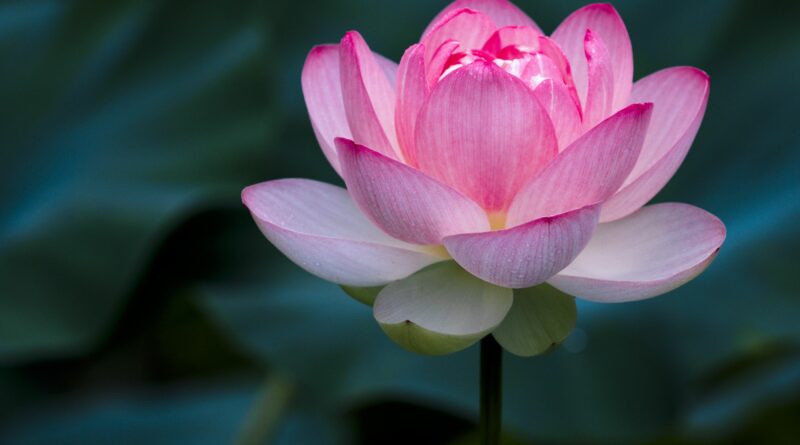Happy For People You Don’t Like
Happy for People You Don’t Like
September 3, 2019
When we spread goodwill, compassion, empathetic joy, and equanimity to all beings, we’re said to be developing a sublime abiding. The Pali term is brahmavihara―literally “the dwelling places of Brahmas.” We try to take our human mind, which can be very partial about wishing well to others, and lift it to the level of the Brahmas, where they wish well to everybody. But if you just do the brahmaviharas, that’s as far as it takes you: to a very high level of being. It’s not release. As the Buddha said, the brahmaviharas on their own don’t lead to dispassion. They don’t lead to unbinding. But if you combine them with the factors for awakening, they can lead to unbinding. What this means is that you should develop them with strong concentration and also use your discernment to analyze what you’re doing, to analyze what you’re wishing in a way that leads to dispassion.
A good example is the development of empathetic joy. Of the brahmaviharas, it’s the one that gets discussed the least—and actually it’s one of the harder ones to do. It lifts your mind to a higher level than simple goodwill or even compassion. And it’s good to think about why. Thinking about why gives you a sense of how you have to go beyond just being happy for other people when they’re happy. You have to think about: “Are there people out there whose happiness is difficult to appreciate?”
Two types of people might come to mind. First are those with whom you’re competing. They have something you want but you don’t have it. They beat you to it. It’s going to be very difficult not to feel resentment in cases like that. So you have to analyze why. You come back to the underlying sense of self that you built around the kind of happiness you want, the image you have of yourself in comparison to other people. And it’s very small-minded not to be happy for other people even in situations like that.
This forces you to look at yourself: how you define yourself with regard to other people, what your attitudes toward happiness are, and what your attitudes toward good fortune are. The Buddha has you reflect, when you see somebody who has some good fortune that you don’t have, that you’ve been there before. You created the kamma to enjoy those things. Now that kamma has shown its results and gone away. If you want those results again, you’ve got to create the kamma to bring them back. But in the meantime, why be envious of those who have what you used to have and would like to have again? It’s a part of human life that there are ups and downs. Sometimes your “down” coincides with their “up.” Sometimes it’s the other way around. So why be envious? Why be resentful? Is that the kind of self you want to nurture? One that’s envious? This kind of reflection helps you to look back on how you can create a sense of self in unskillful ways. It’s one kind of reflection that helps give rise to dispassion.
Another group of people for whom it’s difficult to feel empathetic joy are those who have good fortune and happiness, but either they did something unskillful to gain it or they’re abusing their positions of power and influence now that they’ve got it. But here, too, you have to think they created the causes someplace back in the past to gain that kind of happiness. Now look at what they’ve got. Not only is the happiness they’ve gained impermanent, and the things they’ve done to gain it are unskillful—at least, right in the present moment—but the happiness doesn’t prevent them from acting in unskillful ways.
This shows you that happiness is not all that safe. We may aspire to happiness of one kind or another, but it’s important that we think about the implications: What if we gain that happiness and we abuse it? We’re putting ourselves in a dangerous position. That blessing the monks chant—Āyu vaṇṇo sukhaṁ, balaṁ―long life, beauty, happiness, and strength: Those things can be dangerous. Long life can be pretty miserable toward the end. Beauty: There are a lot of people who abuse their beauty and get abused because of their beauty. Happiness, if it’s worldly happiness, is no protection. And strength: Some people abuse their strength by bullying others.
So this reflection helps you reflect on what kind of happiness would be safe. It forces you to develop some equanimity toward the way kamma works itself out. Sometimes you work for happiness and, by the time it comes, you’ve changed. You’re a different kind of person. You thought you would use your happiness for good purposes but something’s happened in the meantime. As for people who are happy now, who have good fortune now, you have to be equanimous about that fact. But then from equanimity, you move into a sense of dismay and dispassion. You realize that if you want happiness that’s really true, really solid, it has to be more than just worldly happiness. This sense of dismay is what gets you on the path.
So if you’re practicing the brahmaviharas, it’s good to think about them. Empathetic joy, as I said, is a good test case. After all, you say, “I want everybody to be happy, everybody to be happy,” but when you come across somebody who’s actually happy, well, this is what it looks like. Exactly what kind of happiness are you wishing for, for yourself and for other beings? This forces you to reflect. The only kind of happiness that’s safe is what the Buddha calls noble happiness. The only search for happiness that’s safe is the noble search.
So if you combine the practice of the brahmaviharas with the factor for awakening called the “analysis of qualities”—it’s the discernment faculty in the factors for awakening—you go beyond simply trying to create a happy state of mind. You start reflecting on the nature of happiness. That’s when the practice begins to lead beyond something ordinary. It inclines the mind to look for happiness that’s extraordinary: noble, true, harmless, safe. This way, when you’re enjoying the happiness of others, reflect on it so that you’re doing it for the sake of the happiness that’s most worthy of enjoyment and most worthy of pursuit.



